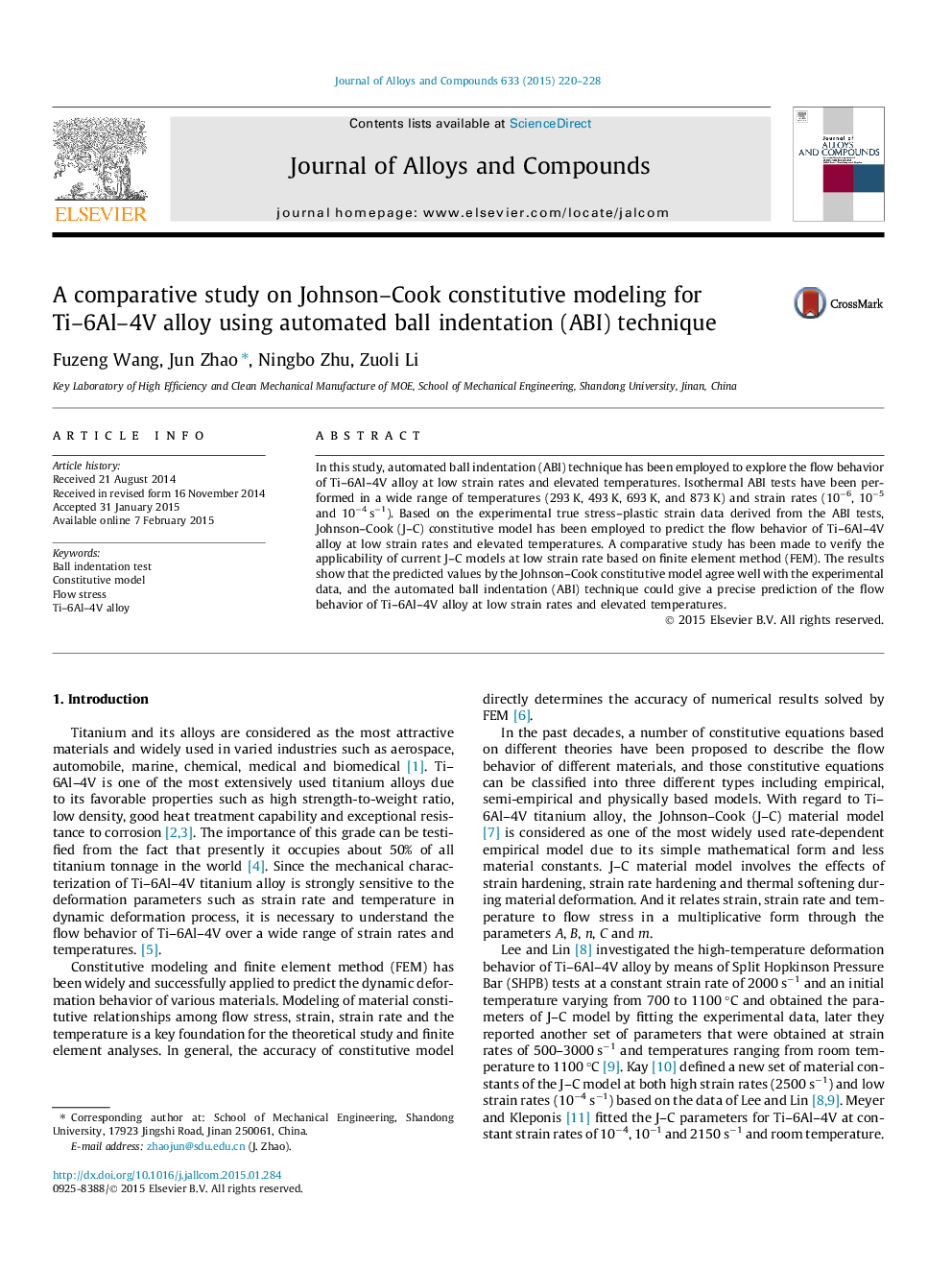| Article ID | Journal | Published Year | Pages | File Type |
|---|---|---|---|---|
| 1609328 | Journal of Alloys and Compounds | 2015 | 9 Pages |
Abstract
In this study, automated ball indentation (ABI) technique has been employed to explore the flow behavior of Ti-6Al-4V alloy at low strain rates and elevated temperatures. Isothermal ABI tests have been performed in a wide range of temperatures (293Â K, 493Â K, 693Â K, and 873Â K) and strain rates (10â6, 10â5 and 10â4Â sâ1). Based on the experimental true stress-plastic strain data derived from the ABI tests, Johnson-Cook (J-C) constitutive model has been employed to predict the flow behavior of Ti-6Al-4V alloy at low strain rates and elevated temperatures. A comparative study has been made to verify the applicability of current J-C models at low strain rate based on finite element method (FEM). The results show that the predicted values by the Johnson-Cook constitutive model agree well with the experimental data, and the automated ball indentation (ABI) technique could give a precise prediction of the flow behavior of Ti-6Al-4V alloy at low strain rates and elevated temperatures.
Related Topics
Physical Sciences and Engineering
Materials Science
Metals and Alloys
Authors
Fuzeng Wang, Jun Zhao, Ningbo Zhu, Zuoli Li,
